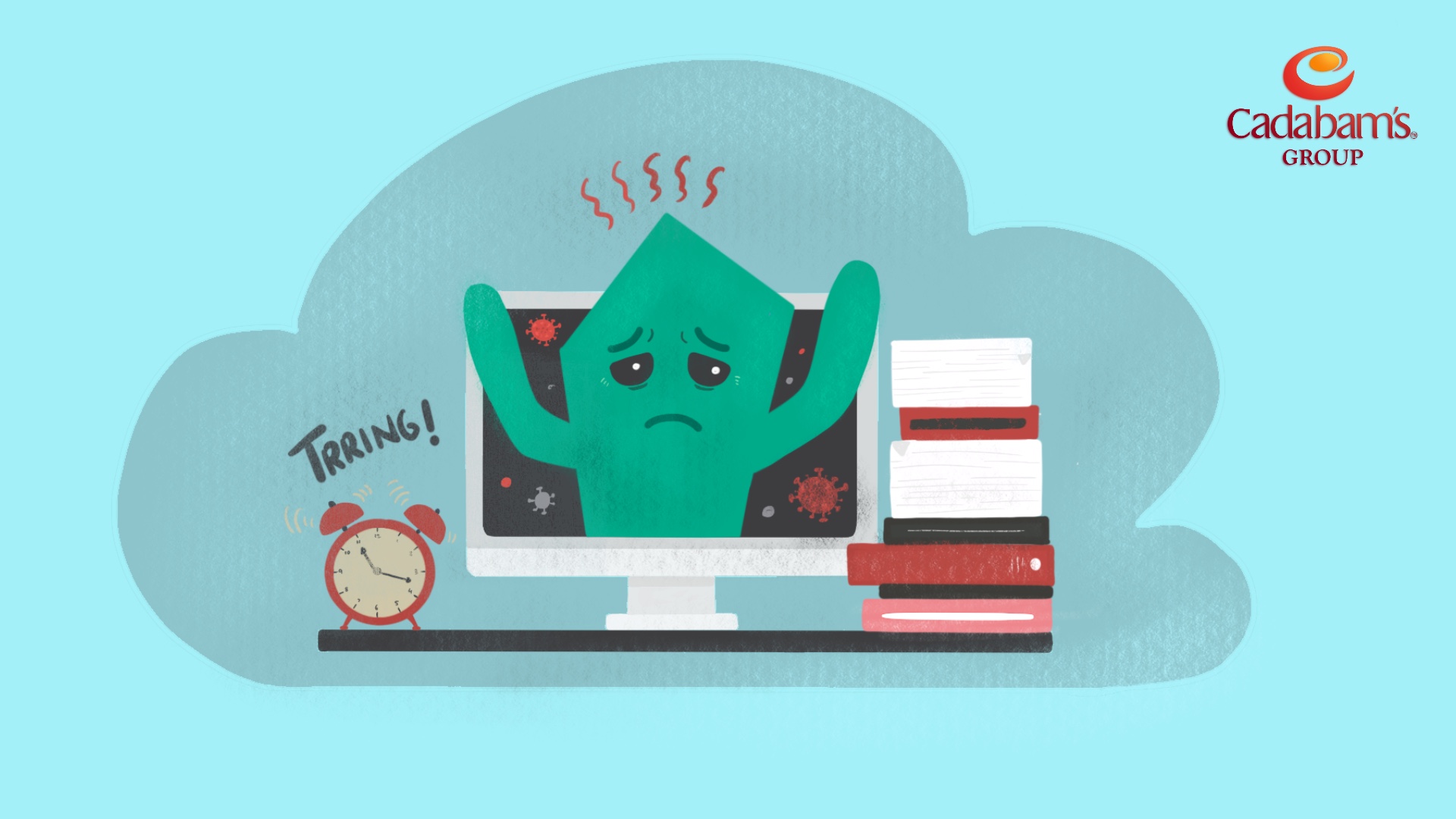Table of Content
Endless to-do list?
Heap of paperwork on your desk?
24/7 buzzing phone?
Very strict weekend deadlines?
If all of this is happening to you on a regular basis, we think it's time to break the connection, unplug the cord, and permanently turn off 'always on' work culture.
‘Always on, always working’ work culture impacts the mental health of employees much more than it yields productivity. It induces intense stress and results in spiralling of an individual. Stress is part of everyday life. Cigna 360 Well-Being Survey 2019 revealed that 87% of workers say they are stressed at workspaces, 12% feel that their stress is unmanageable, and 64% claim to be in an “always on” environment.
Stress can be beneficial and motivating but when stress becomes overwhelming, it can have a huge impact on a person’s mental health and physical wellbeing. Recognising the early signs of burnouts and exhaustion can help prevent deterioration of mental hygiene. Taking steps to manage stress in the workplace is vital for both employers and employees to create a mentally healthy working environment where people feel supported and motivated.
What causes stress in workspaces?
There are multiple factors that might result in workplace stress like physical discomfort, multitasking, interpersonal conflict, or disorganisation in the workplace setting. Along with work-related stress, certain other factors add in this stress build-up. They are:
- Low salaries
- Excessive workloads and longer working hours
- Few opportunities for growth or advancement
- Work that is not engaging or challenging
- Lack of social support
- Not having enough control over job-related decisions
- Unclear performance expectations
How to identify the signs of workplace stress?
Workplace stress builds over time and hampers with one’s health and productivity. It’s best to identify the signs of excessive workplace stress and prevent them from intensifying or taking a toxic toll on one’s mental wellbeing as early as possible.
If these signs are unceasing and are affecting your mood and attitude towards your work, your personal life and your relationship with your co-workers, it is time for a change. These signs include:
- Persistent irritated mood
- Feeling of anxiousness
- Lack of concentration and reduced productivity
- Chronic headaches and physical unease
- Trouble sleeping
- Social Isolation
- Lack of sex drive
- Substance abuse
- Anger and violent thoughts
- Depression
- High blood pressure
- Weakened immune system
How to manage workplace stress?
Here are some stress management techniques that can help one cope with workplace stress and help maintain good physical and mental health.
Take things one step at a time:
When the work pressure or stress is at a low level it increases efficiency. To keep it that way, one has to concentrate on one thing at a time - whether it is workplace activity or school or personal life. This habit will get the work done in time and also ensure a high quality of work.
Instead of repeating tasks and consuming a lot of time doing them, sort them out, prioritise them and plan accordingly. However, if you still need to multitask, you can do something like dividing them into simple chunks and set different times in the day to focus on various activities.
Start your day right
Stress management and time management go hand-in-hand. They complement each other and ease one’s daily life if done properly. After completing errands at home, dodge the traffic and crowd while commuting, and have a nice, warm cup of your preferred beverage at work and then commence your work. It’ll help elevate your mood and get you energized for your work routine.
However, when you start your day on a stressful note, you may notice that you are way more reactive to stress at work as well. This will make you jittery, anxious, irritable, and bring about a negative attitude as well. One of the many advantages of stress management is that you learn to slow down and analyze your daily routine so that you can reduce your stress levels throughout the day.
Stress management in the workplace begins when you start your day off on the right foot. This includes proper planning, a nutritious breakfast, a clear view of the tasks that need to be completed for the day, and a positive attitude will help you manage stress more easily.
Organize yourself:
Sometimes the list of tasks you have in a day makes you stressed and overwhelmed. So start doing things in a smart way where you feel comfortable and build momentum.Maintain a to-do list and try your best to stick to it. List out the top 2 or 3 priority issues and try to resolve it instead of scattering your attention across different tasks.
Address conflict without adding to it
Conflicts are going to happen at any job – whether it’s between coworkers or managers, it’s inevitable. To avoid adding more stress on yourself or your fellow workers, don’t let the conflict continue. Let 80% of your concentration be on finding the solution and only 20% on the dwelling.
Address physical issues that are adding to stress:
- Move around. Walk on your break. A good rule of thumb is to avoid sitting or being in one position for more than an hour.
- Stretch your muscles. Do basic head, neck, arm, and leg stretches to get the blood flowing. It’s amazing how stress and tension end up locked in the muscles of the body. Work that out through stretches.
- Healthy snacking. Excessive use of caffeine and sugar make you edgy and jumpy. Eat more fruits and vegetables instead of candy or carbs. Drink water or herbal tea instead of soda and coffee.
- Alter your surroundings. Use aromatherapy, humidifiers, air purifiers, white noise, cushion mat, or anything that helps create the physical surroundings that will help you calm down and make you less tired. Making an effort to improve your physical office space can transform a stress-filled room into a zen office.
Take breaks to rejuvenate:
Include recreational activities as a part of your working hours. Not only benefits one’s individual well being but increases productivity within teams, helps in building good team relationships, energises and motivates all employees.
Be clear about your role:
One of the major factors that contribute to employee burnouts is unclear requirements. If you have no idea what your tasks are and what you are expected to do, or if the requirements keep changing repeatedly, then you may be falling into a trap that will escalate your stress levels.
The solution to this problem is that you will have to talk to your supervisor and go over your expectations and career plan. This can be a major stress buster for you and will help you avoid misunderstandings with your supervisor.
Learn to accept what is in your control, and what isn’t:
Make changes to what you can control. The rest is not worth getting upset about. Figure out things that are in your control and make them more comfortable for yourself but for certain things that are out of your reach, instead of letting them tire you, work around the problem and try to adjust/bear with them.
Don’t overload yourself:
Limit your daily information intakes such as newsletters, blogs, and podcasts. Consuming too much information or content might make it harder for your brain to process important information when you need to. Limiting overload makes it easy to focus on what you do.
Remember to breathe
In a stressful moment, don’t forget to breathe. Closing your eyes and breathing in deep and letting that breath out slowly can help slow down and reduce your negative physical reactions to stress. It can also help you control your reaction to a tense situation that might otherwise escalate into something more stressful.
If you’re unable to find relief and suffer from constant anxiety at the workplace, you may need help to reduce the effects of stress on your life. Call us on our 24X7 helpline @ +91 9741476476.
How Cadabam's Help you for Addiction?
- 410+ Professional Consultants
- 1,00,00+ Happy Faces
- 120+ Currently Seeking Treatments












